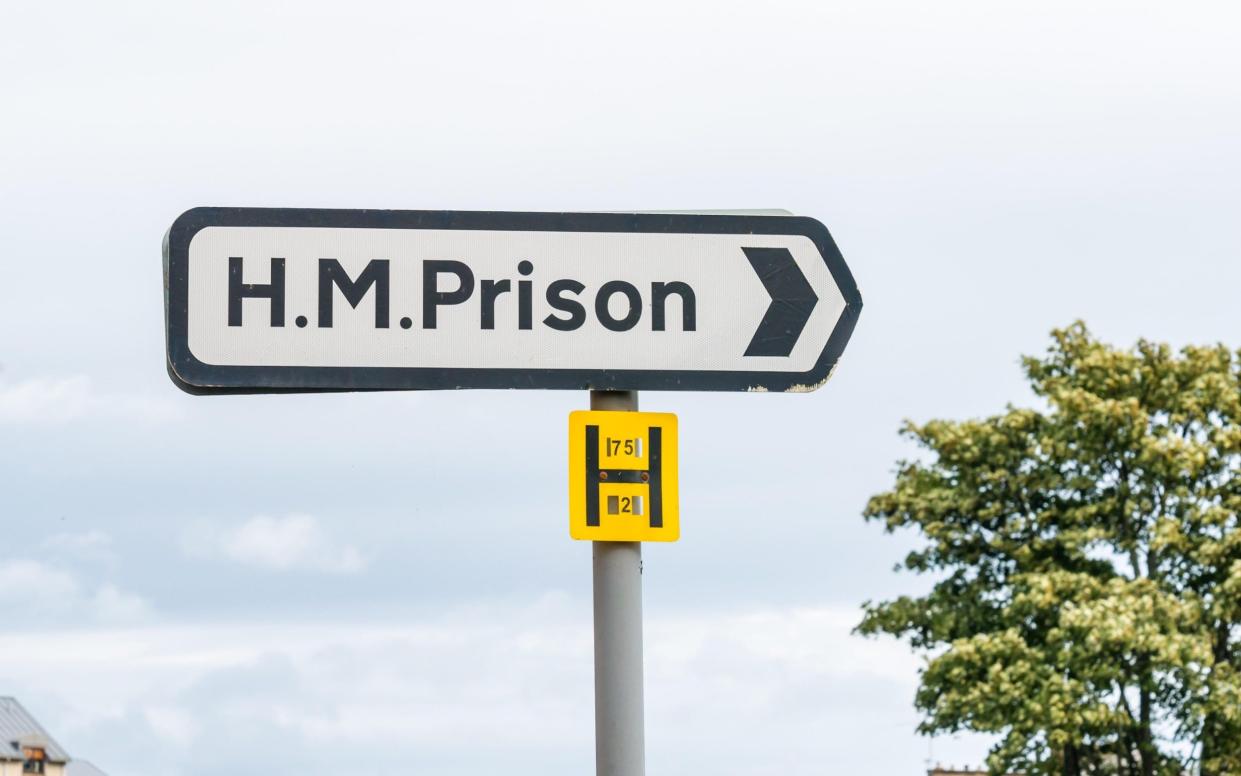Armed robbers among violent criminals to be released six months early

- Oops!Something went wrong.Please try again later.
Armed robbers, drug dealers and violent offenders could be released from prison six months early under a scheme introduced this month to tackle the overcrowding crisis in jails.
Hundreds of criminals serving sentences of over four years will be released up to 180 days early to help ease the pressure on jails, which are projected to reach bursting point by the middle of July.
The move comes on top of the early release scheme, which gives governors discretion to free low-risk prisoners up to 70 days before the scheduled date.
The 180-day scheme has been allowed by legislation that expands what is known as home detention curfew (HDC). This is where offenders can be freed to a named address on electronic tags with restrictions on when they can leave the house.
Until this month, it had been limited to offenders serving sentences under four years but has been extended to prisoners handed “determinate” sentences of more than four years.
This means that offenders who are not subject to their release being determined by a parole board are eligible. Sex offenders, terrorists, killers, stalkers and domestic abusers are excluded from the scheme.
But criminals convicted of robbery, burglary, violence, drug dealing and fraud could be eligible, provided they are on “determinate” sentences.

Labour claimed it was further evidence of the Government’s failure to manage the prison system so that they had enough spaces and to protect the public.
Shabana Mahmood, Labour’s shadow justice secretary, said: “Over 14 years, the Conservatives allowed a crisis to build in our prisons and made the public less safe. They promised 20,000 new places and didn’t deliver them. Now our prisons are a powder keg, waiting to explode. Only Labour can turn the page on this crisis and build the prisons we need.”
The Ministry of Justice (MoJ) estimated between 750 and 950 prisoners serving more than four years would be released early on tags at any one point.
The changes follow an earlier expansion of the home detention scheme last year which increased the time offenders could spend on tags in the community from 135 days to 180 days. It was also seen as a measure to deal with the overcrowding crisis.
It means burglars, thieves and fraudsters jailed for up to 18 months could be freed a quarter of the way through their sentences, rather than the normal halfway through their jail terms.
The shortage of prison places is expected to come to a head in the second week of July. Prison governors have been told that data points to an “operational capacity breaking point” only days after the July 4 general election.
This means they will struggle to accept any more inmates, plunging whichever party comes to government into a crisis. It is expected to trigger Operation Early Dawn, a measure that allows for offenders to be housed in police cells and for magistrates courts to delay cases.
Tom Wheatley, the president of the Prison Governors’ Association, said: “We understand that we will no longer be able to receive prisoners from court in the second to third week of July. It is not an exact science – but it is very soon after the election.”
The incoming justice secretary will have to decide whether to accept proposals from officials for emergency legislation to allow the early release of prisoners 43 per cent of the way through their sentence rather than the current 50 per cent point, as revealed last month by The Telegraph.
Modelling shows this would be the most effective medium-term solution to the overcrowding crisis, freeing thousands of spare places. It would replace the current ad hoc early release scheme of up to 70 days.
According to MoJ data, released on Friday, the usable capacity in prisons across England and Wales was 88,778, while the population was 87,395.
The MoJ says the expansion of the HDC scheme reflects the change in profile of the prison population. Whereas offenders serving under four years accounted for half the prison population 20 years ago, they now account for just a quarter.

